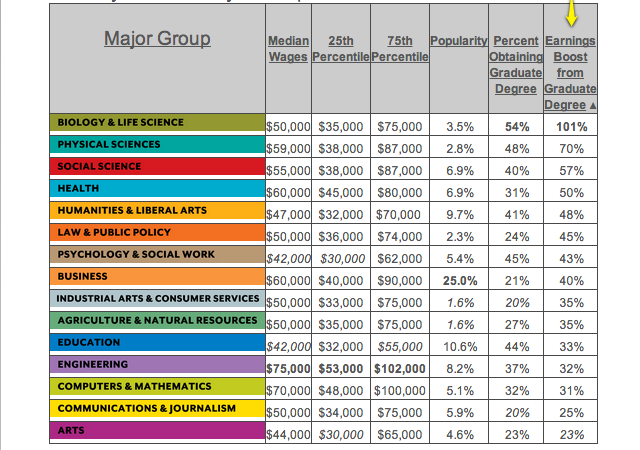Back-to-school is in the air, so let’s stay with last week’s theme of education. Many people struggle mid-career with the question of whether to further their education. They may be asking, “Am I being held back for my lack of a Masters’ degree?” or, “Would having a PhD under my belt make me more in-demand?”
Perhaps it’s not a question of whether you will earn more, but one of having more knowledge or the experience of being in academia again.
My thoughts?
Oh, let’s face it, as a financial adviser, I think you should know what the return on investment is before committing time and money to an advanced degree. After all, going back to school when you have a job and mortgage and kids is not going to be nearly as fun as your kegger-fueled days at Daddy-Paid-For-It State University.
Here are some statistics from the US Census Bureau (okay, it’s a little old, but you get the idea) on how much extra earnings you might get in different careers for a graduate degree:

Source for this table: http://lifehacker.com/should-i-go-to-grad-school-509484999
How to use this data?
Consider the average Master’s degree costs about $30,000/year in tuition at a public university and takes 2 years to complete. How many years of extra earnings will it take to cover that $60,000 tuition bill?
At a 101% earnings premium over $50,000 median wage in Biology, you’ll earn an extra $50,000/year in earnings. It won’t take long to see the benefit of that $60,000 tuition bill. However, a Master’s in art will give you an average annual boost of $10,000/year, or 6 years to recoup the cost of tuition.
Of course, it’s not all about money – even I realize that! Kind of. However, being realistic about costs and benefits has never hurt a decision process.



